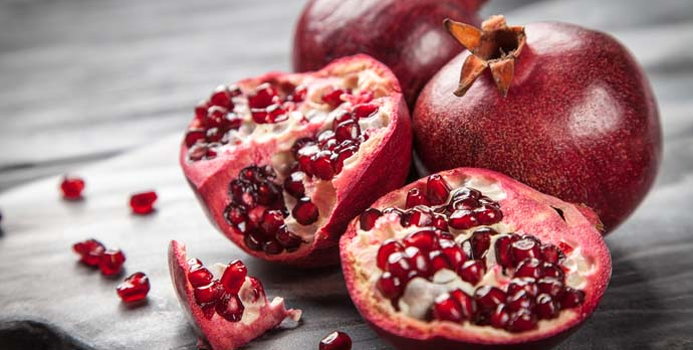Even though it can often feel like the variety of fruits and vegetables available in the winter decreases, there are actually quite a few tasty fruits and vegetables that start showing up grocery stores this time of year. Often they are only available this time of the year, so make the most of the season and the winter varieties!
Persimmons / Kaki Fruit
This is a favorite winter fruit that grows late into the fall and winter before it is ready for harvesting. Depending on where it is grown, it could be a variety of colors but is most often orange. Picking a good persimmon can take some skill but you should select one that is firm and brightly colored with a slight softness when squeezed. One fruit has about 1/3 of your daily needs for vitamin C!
Pomegranates
Although pomegranates can sometimes be tough to eat without making a huge mess, they are another wintertime favorite. To reduce the mess, try opening the pomegranate while submerged in a bowl of water and then straining all the water out to leave the seeds. Pomegranates are often called a superfood because they are nutrient dense. One fruit is packed much of your daily need for copper, vitamin c, potassium, folate, vitamin K, manganese and other nutrients. Vitamin K is important in helping wounds heal and minerals like copper help to maintain blood cells and your immune function.
Winter Squash
This is another seasonal food that comes in a number of different varieties. Winter squash typically is prepared the same way as summer squash but because it has a harder rind, usually that is not eaten. Winter squash varieties include butternut squash, pumpkins, and acorn squash. Winter squash is also a great addition to your diet because it is full of vitamins and minerals, in addition to being tasty and filling. Squash typically has lots of vitamin C, thiamin, and potassium. Thiamin is an important B-vitamin which can help you to utilize the food that you eat and transport electrolytes in and out of cells.
[Image via Shutterstock]



